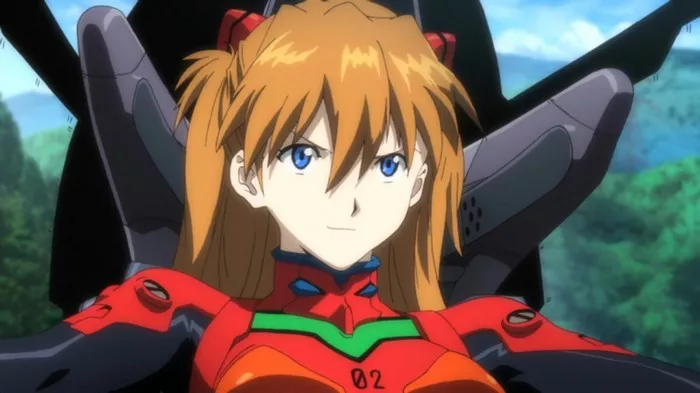Asuka Langley Soryu is a character from the renowned anime series “Neon Genesis Evangelion.” Known for her fiery personality, exceptional piloting skills, and complex backstory, Asuka has captured the hearts and minds of anime fans worldwide. However, beneath her confident facade lies a mystery that has intrigued fans for years – could Asuka be a clone?
Delving into the Controversy: The Theory of Asuka’s Cloning
Since the debut of “Neon Genesis Evangelion,” fans have speculated about Asuka’s origins, with one prevailing theory suggesting that she is, in fact, a clone. This theory stems from various clues and hints scattered throughout the series, as well as the ambiguous nature of Asuka’s backstory.
1. The Mysterious Origins: Asuka’s Past
Asuka’s backstory is shrouded in mystery, with little concrete information provided about her early life. She is introduced as a highly skilled Eva pilot, but her origins and family history remain largely unexplored. This lack of backstory has led fans to question the true nature of Asuka’s identity.
2. Clues and Foreshadowing: Subtle Hints Throughout the Series
Throughout “Neon Genesis Evangelion,” there are subtle hints and clues that suggest Asuka may not be entirely human. These clues range from her exceptional piloting abilities to cryptic remarks made by other characters about her origins. Additionally, Asuka’s complex relationship with her Eva unit, Unit-02, further fuels speculation about her true nature.
3. The Role of NERV: Unraveling the Agency’s Secrets
Asuka’s connection to the enigmatic organization known as NERV adds another layer of intrigue to the theory of her cloning. NERV is involved in groundbreaking research and technology, including the creation of the Eva units and the manipulation of human DNA. Could Asuka be the result of NERV’s experiments in cloning and genetic engineering?
Analyzing the Evidence: Supporting the Theory of Asuka’s Cloning
While the theory of Asuka’s cloning remains speculative, there is compelling evidence within the series to support this idea. From Asuka’s uncanny resemblance to other characters to her unusual behavior and abilities, numerous factors contribute to the plausibility of the cloning theory.
1. Physical Resemblance: Echoes of Other Characters
One of the most striking aspects of the cloning theory is Asuka’s physical resemblance to other characters in the series. Fans have noted similarities between Asuka and other characters, including Rei Ayanami and Yui Ikari, both of whom have ties to NERV and the secretive organization SEELE. These resemblances raise questions about Asuka’s true identity and her connection to these characters.
2. Psychological Trauma: The Struggle with Identity
Throughout “Neon Genesis Evangelion,” Asuka grapples with profound psychological trauma and identity issues. Her struggle to define herself and assert her individuality suggests underlying conflicts related to her origins and sense of self. Could Asuka’s internal turmoil be linked to the revelation of her true nature as a clone?
3. Eva Synchronization: An Unnatural Connection
Asuka’s remarkable synchronization rate with her Eva unit, Unit-02, is another piece of evidence that supports the cloning theory. While Eva pilots typically undergo extensive training and synchronization tests, Asuka demonstrates an unusually high level of compatibility with her Eva from the outset. This unnatural connection hints at a deeper bond between Asuka and her Eva, perhaps rooted in their shared origins as clones.
Exploring Alternative Interpretations: Debunking the Cloning Theory
Despite the compelling evidence in favor of Asuka’s cloning, there are alternative interpretations and counterarguments that challenge this theory. From thematic considerations to narrative choices, various factors complicate the question of Asuka’s true origins and identity.
1. Themes of Identity and Individuality: Psychological Depth
“Neon Genesis Evangelion” is renowned for its exploration of complex themes such as identity, individuality, and existentialism. Asuka’s character arc reflects these themes, portraying her struggle to define herself and find her place in the world. While the cloning theory adds an intriguing layer to Asuka’s character, it is equally plausible that her identity crisis is a product of her upbringing and traumatic experiences rather than her status as a clone.
2. Narrative Ambiguity: Leaving Room for Interpretation
One of the hallmarks of “Neon Genesis Evangelion” is its narrative ambiguity and open-endedness. Creator Hideaki Anno deliberately leaves many aspects of the story open to interpretation, allowing viewers to draw their own conclusions about the characters and their motivations. The theory of Asuka’s cloning may simply be one of many possible interpretations, rather than a definitive explanation of her character.
3. Symbolism and Allegory: Metaphorical Meanings
Another interpretation of Asuka’s character is that she serves as a symbolic or allegorical figure, representing broader themes and concepts within the series. Asuka’s struggles with identity and self-worth may be symbolic of the human condition, reflecting universal experiences of alienation and existential angst. In this light, the question of whether Asuka is a clone becomes less important than the thematic resonance of her character arc.
Conclusion: The Mystery Continues
As fans continue to debate the theory of Asuka’s cloning, one thing remains clear – her character is a source of fascination and intrigue for audiences worldwide. Whether she is a clone, a product of genetic manipulation, or simply a complex individual with a troubled past, Asuka Langley Soryu continues to captivate audiences with her fiery spirit and enigmatic presence.
As the legacy of “Neon Genesis Evangelion” endures, so too will the mystery of Asuka’s origins, reminding us of the enduring power of storytelling and the endless possibilities of the human imagination.


